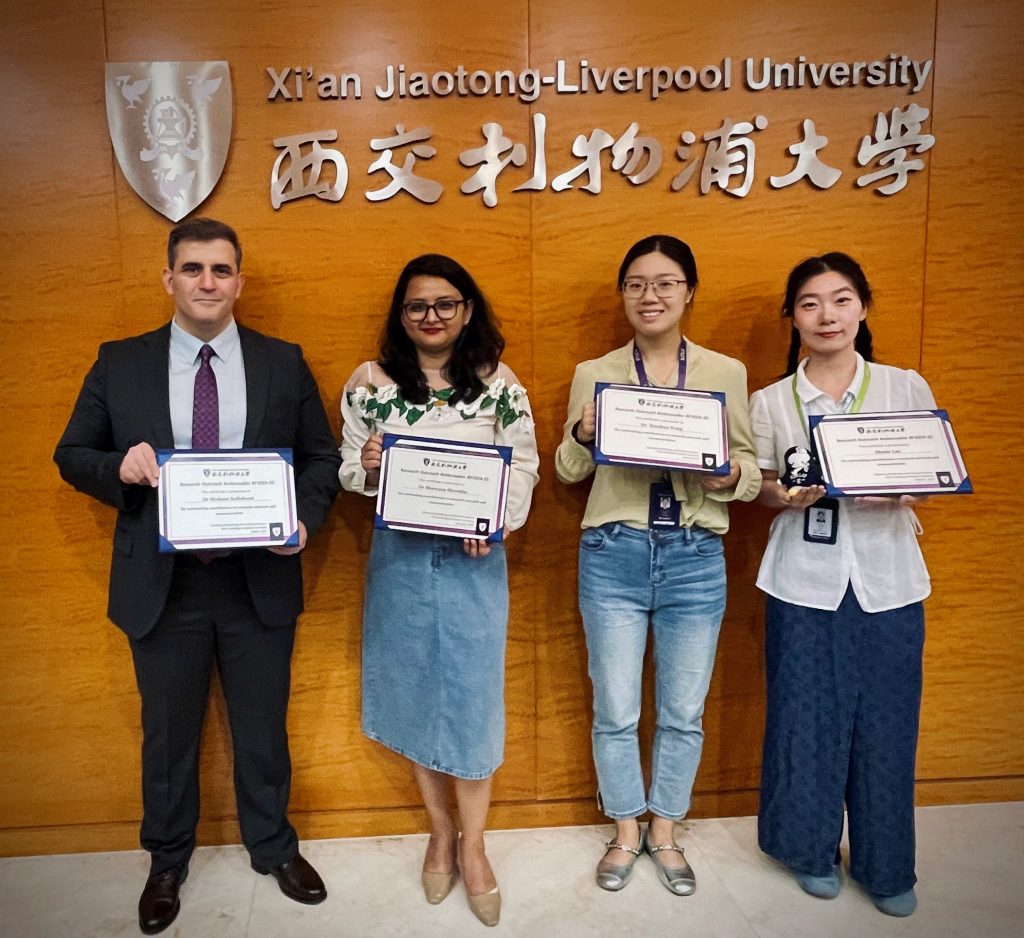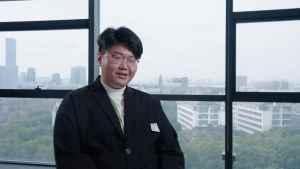18 Jun 2025
Xi’an Jiaotong-Liverpool University (XJTLU) hosted the 2025 International Conference on Artificial Intelligence and Education (ICAIE) from 14 to 16 May. The conference brought together over 250 participants from countries including Australia, China, Italy, Malaysia, Singapore, UK, and US.
Themed “Embracing a New Era of Education Enabled by AI: Personalisation, Gamification, and Interdisciplinary Integration,” the conference featured both in-person and online events. Experts, scholars, and industry leaders discussed how AI is reshaping learning environments worldwide.
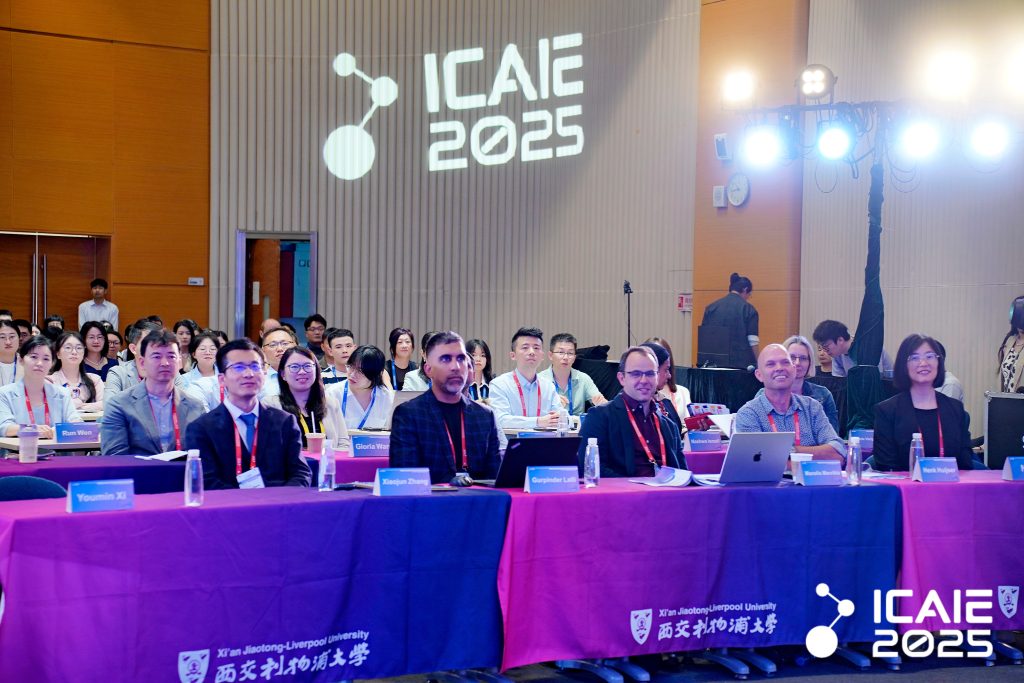
The 2025 International Conference on Artificial Intelligence and Education (ICAIE)
A student-centred future
In his opening speech, Professor Youmin Xi (pictured below), Executive President of XJTLU, said: “AI is not a replacement for education, but a driving force for its transformation. By integrating AI into the educational system, we aim not only to improve teaching efficiency but also to nurture students’ creativity and adaptability.”
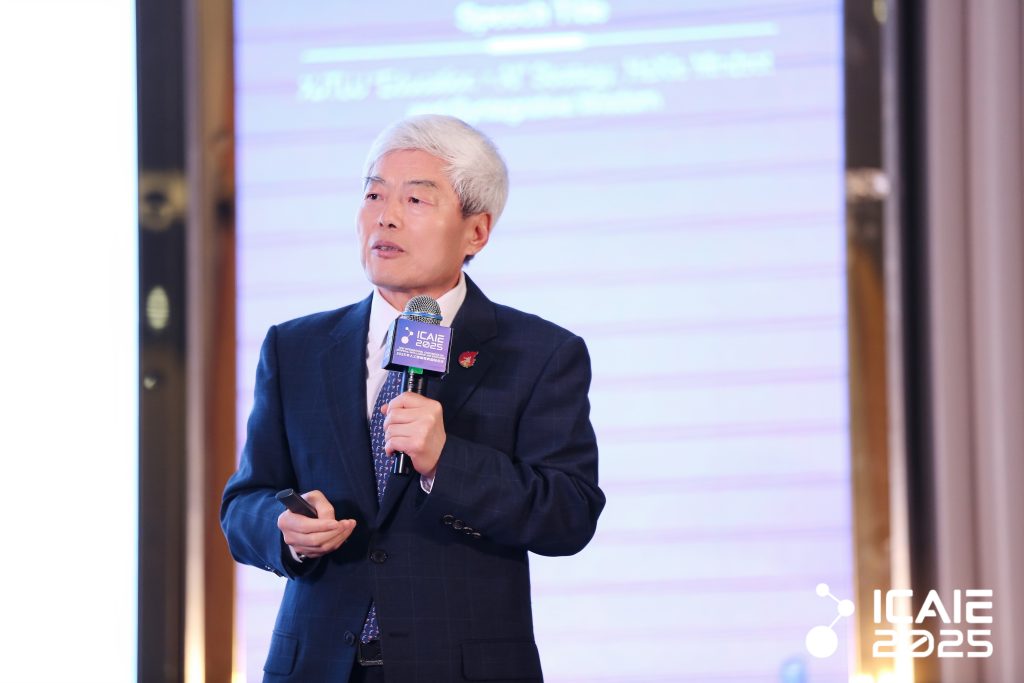
Echoing this vision, Professor Xiaojun Zhang, XJTLU’s Chief Officer of Education and Executive Dean of the Academy of Future Education (AoFE), highlighted how the integration of AI is reshaping the foundation of learning. “Education is shifting from traditional knowledge delivery to a more personalised, student-centred model,” he said. “Our goal at XJTLU is to create a truly student-centred learning ecosystem.” Building on this vision, Professor Zhang outlined two key goals: developing a human-AI collaborative system where teachers become facilitators of learning, and breaking away from rigid structures of education to support lifelong learning. “Education should serve students’ individual growth, rather than be confined to the meeting of short-term goals,” said Professor Zhang.
This commitment to innovation is also reflected in how XJTLU uses AI to promote both equity and efficiency in education. Professor Eng Gee Lim (pictured below), Dean of the School of Advanced Technology and Executive Dean of the Academy of AI at XJTLU, introduced a student project allocation system driven by predictive models and adaptive algorithms – tools designed to personalise academic pathways and optimise resource use for students embarking on their final year project.
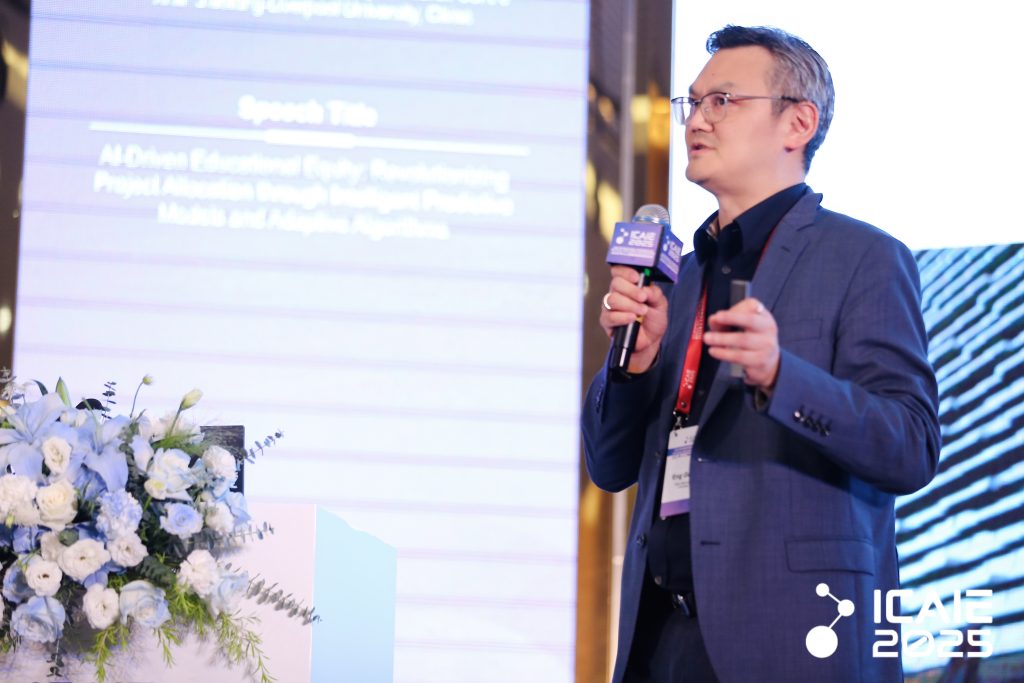
Dr Na Li (pictured below), Co-Director of the Research Centre for AI and Education at AoFE, highlighted interdisciplinary collaboration among researchers in her presentation. “Over the past year, more than 150 researchers from over 20 disciplines at XJTLU have preliminarily verified the potential of AI in tackling complex educational challenges. We aim to explore how breaking down traditional academic boundaries can lead to more innovative solutions for education,” she said.
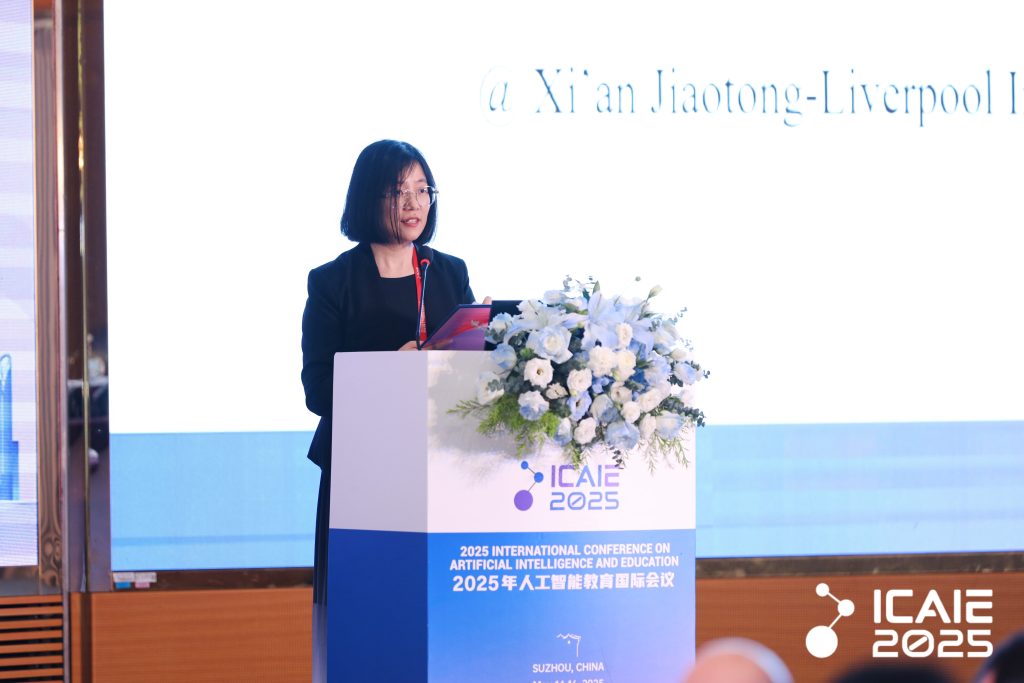
‘A double-edged sword’
The interdisciplinary exploration also extended into broader discussions on the opportunities and challenges posed by Generative AI (GenAI). Dr Jinhee Kim from Old Dominion University, US, addressed GenAI’s strengths in academic writing and collaboration and its limits in logical reasoning tasks like mathematical modelling. Her team is working on a human-AI collaborative framework that balances automation with pedagogical integrity. “GenAI is transforming learning and teaching, playing diverse roles such as tutor, coordinator, and even learning companion,” she said. “Positioning AI in students’ learning would require a shift towards education-first from AI-first based on a stronger theoretical and pedagogical grounding.”
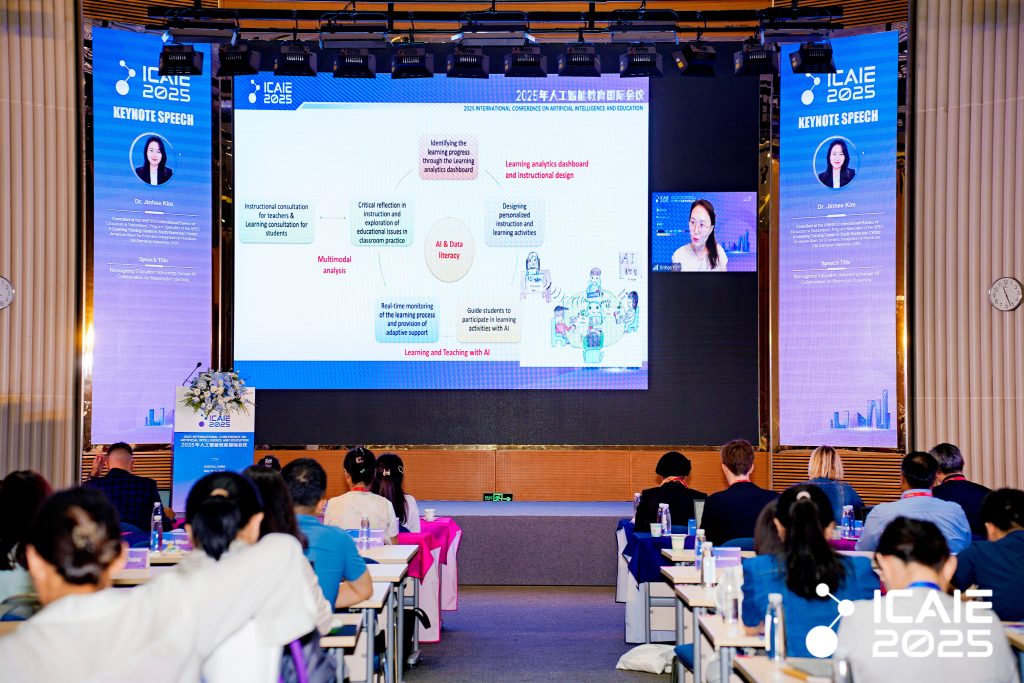
Dr Jinhee Kim from Old Dominion University delivering an online presentation
The conference was not only about the integration of AI in education. Ethical concerns about AI usage also took centre stage. In his speech, Dr Henk Huijser (pictured below) from Queensland University of Technology, Australia, highlighted the importance of maintaining educational values. “We must guarantee that learning takes place in the pursuit of efficiency,” he said, pointing to ongoing debates about AI’s role in curricula and academic integrity.
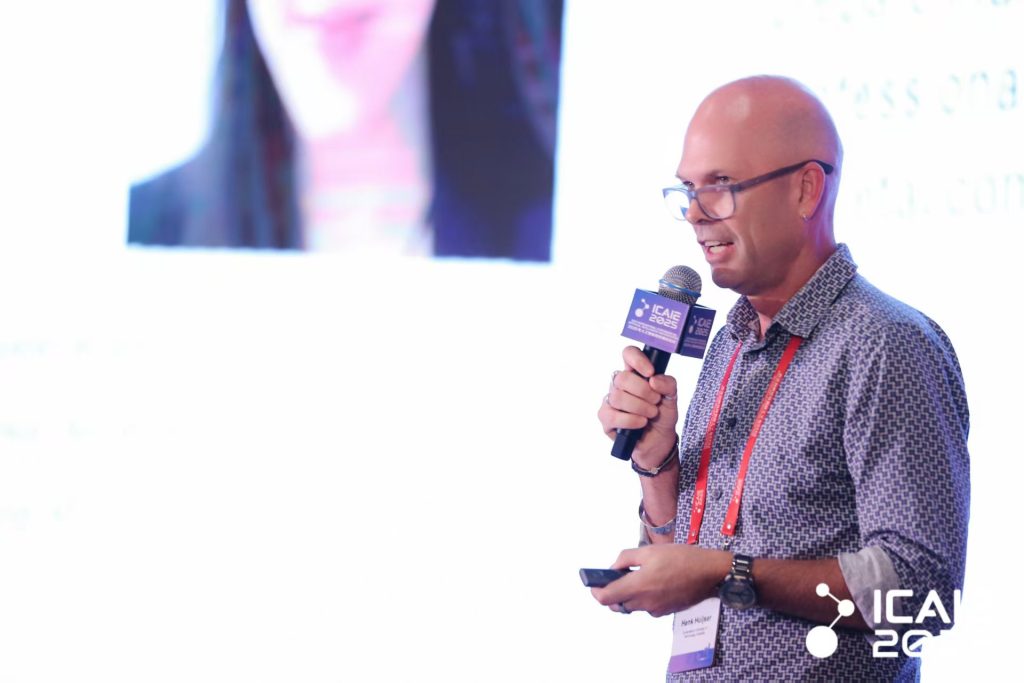
Global collaboration and emerging trends
The conference featured a panel discussion on “Innovative Technologies and Emerging Trends in Transnational Education”. Initiated by the British Educational Research Association (BERA), the panel gathered UK university representatives to share practical insights on integrating GenAI into curriculum design and assessments.
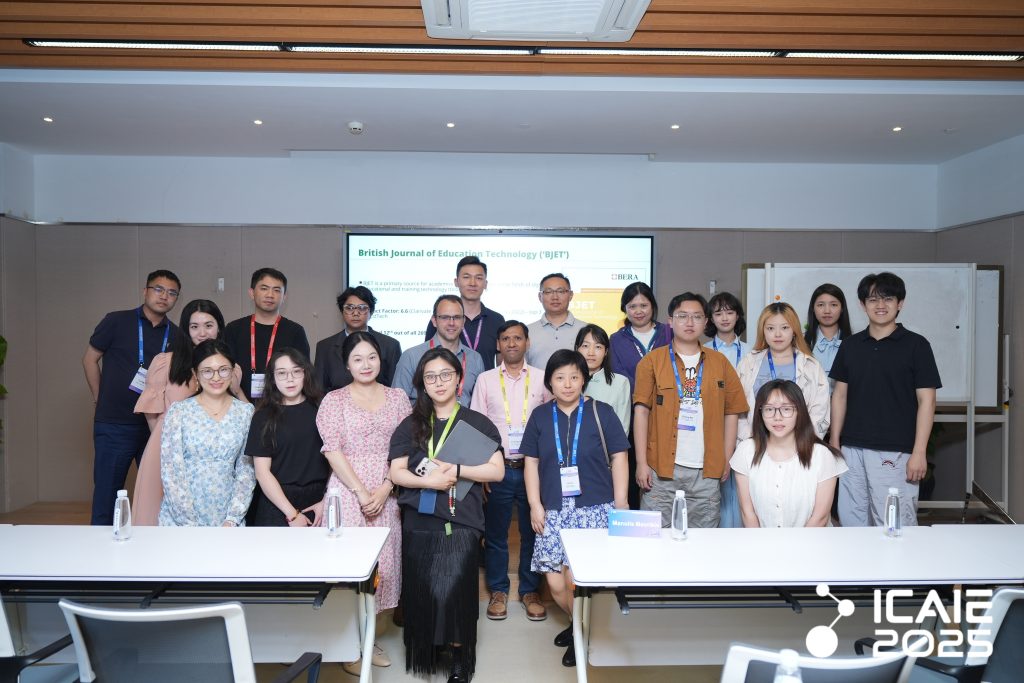
The Journal Editor-in-Chief Meeting at ICAIE
At the Journal Editor-in-Chief Meeting, editors from top journals like the British Journal of Educational Technology, and the European Journal of Education discussed publication trends, peer review practices, and the evolving landscape of academic publishing.
During the three days conference, multiple online and offline sessions also explored themes including AI-enabled personalised education, gamification, interdisciplinary integration, and recent developments in educational technology.
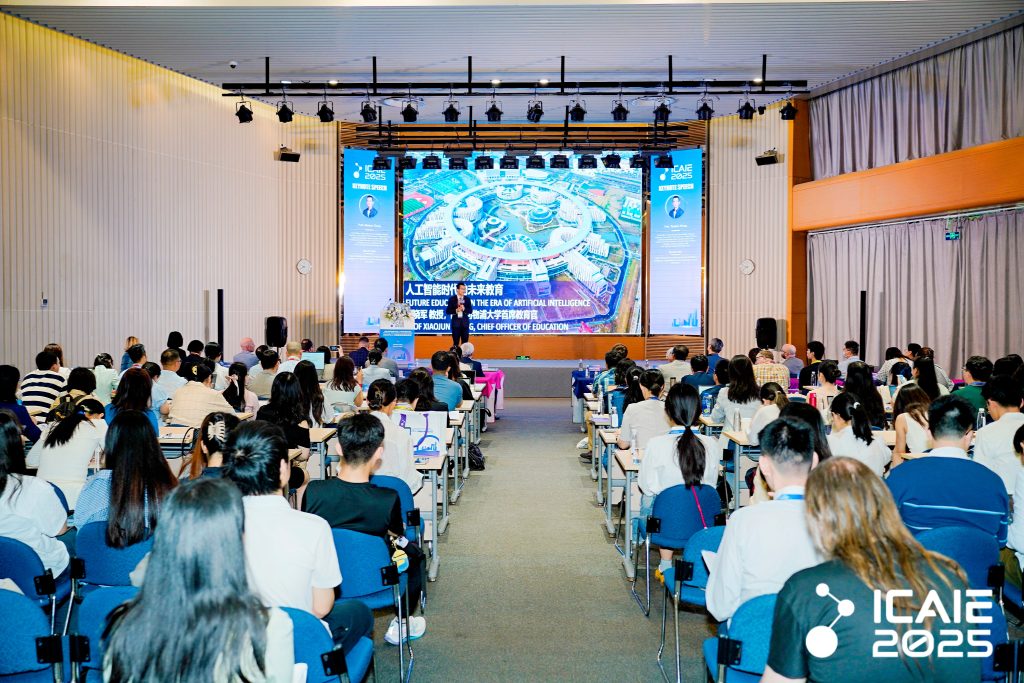
The conference was initiated by XJTLU and hosted by the Academy of Future Education with support from Institute of Electrical and Electronics Engineers (IEEE) and major academic organisations including the BERA, Australasian Journal of Educational Technology, and the Suzhou Association
By Xiaoyan Jin
Translated by Xiangyin Han
Edited by Xinmin Han
Photos courtesy of ICAIE
18 Jun 2025



